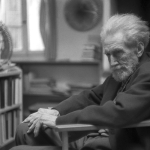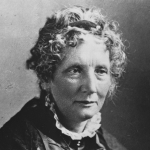I sat on the Dogana’s steps
For the gondolas cost too much, that year,
And there were not “those girls”, there was one face,
And the Buccentoro twenty yards off, howling, “Stretti”,
And the lit cross-beams, that year, in the Morosini,
And peacocks in Koré’s house, or there may have been.
Gods float in the azure air,
Bright gods and Tuscan, back before dew was shed.
Light: and the first light, before ever dew was fallen.
Panisks, and from the oak, dryas,
And from the apple, mælid,
Through all the wood, and the leaves are full of voices,
A-whisper, and the clouds bowe over the lake,
And there are gods upon them,
And in the water, the almond-white swimmers,
The silvery water glazes the upturned nipple,
As Poggio has remarked.
Green veins in the turquoise,
Or, the gray steps lead up under the cedars.
My Cid rode up to Burgos,
Up to the studded gate between two towers,
Beat with his lance butt, and the child came out,
Una niña de nueve años,
To the little gallery over the gate, between the towers,
Reading the writ, voce tinnula:
That no man speak to, feed, help Ruy Diaz,
On pain to have his heart out, set on a pike spike
And both his eyes torn out, and all his goods sequestered,
“And here, Myo Cid, are the seals,
The big seal and the writing.”
And he came down from Bivar, Myo Cid,
With no hawks left there on their perches,
And no clothes there in the presses,
And left his trunk with Raquel and Vidas,
That big box of sand, with the pawn-brokers,
To get pay for his menie;
Breaking his way to Valencia.
Ignez de Castro murdered, and a wall
Here stripped, here made to stand.
Drear waste, the pigment flakes from the stone,
Or plaster flakes, Mantegna painted the wall.
Silk tatters, “Nec Spe Nec Metu.”

















Comment form: